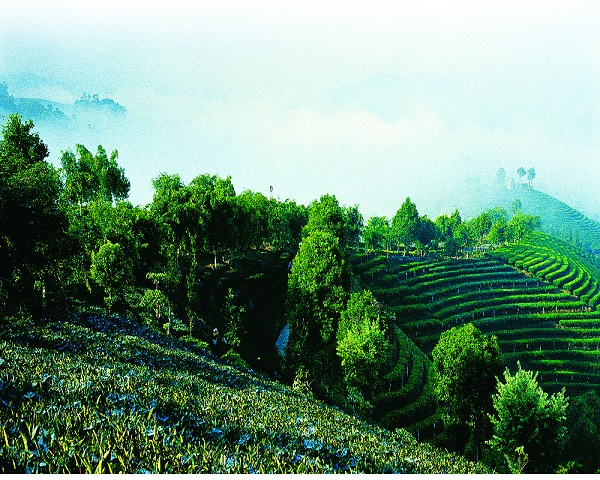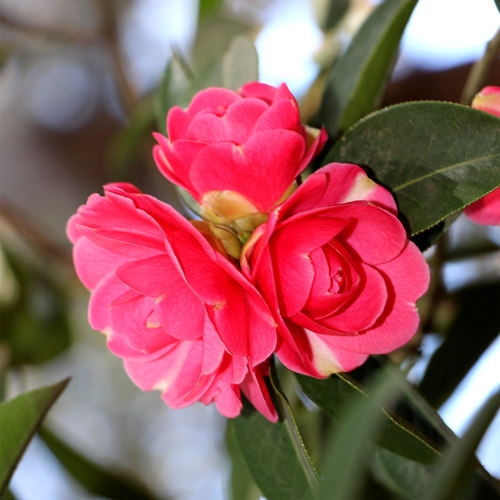
Flower-themed Tour in Kunming
Kunming, the “Spring City”, has been listed as the second most livable cities among other 40 in China. Apart from its pleasant weather, relaxed lifestyle, rich and diversified history and culture, fresh flowers, however, play a distinct role in this city in a lot of aspects. People who live in this slow-paces city have long been accustomed to watering flowers in the morning, appreciating the beauty of flowers in the afternoon and decorating their home and even their dinning tables with some local flowers. This article features in some of the most visited flower-themed destinations in Kunming, taking you to experience the city of flowers from dinning, living and beyond.
City of Flower

(photo credit:cityofflower.com)
City of Flower is a complex of a 4A-level scenic spot, shopping mall, hotel, spa centre, flower market and other industries. Located on eastern side of Kunming, about 20 minutes from Kunming Changshui International Airport, it aims to attract more tourists from both home and abroad to have the one-stop experience of Yunnan’s dynamic ethnic culture and its rich flower culture.
Flower Mountain of Peacock
This iconic design was created by Ren Shimin, a well-known sculptor who has adopted several rare stones to decorate it. The tail of the peacock is composed of 1.5 million colourful flowers, making it splendid from every angle.

(photo credit:cityofflower.com)
Sino-French Spice Trade Cultural Experience Museum

(photo credit:cityofflower.com)
With numerous items, this 3,800 square metres exhibition hall brings everything into life: the seawater, cargo ship, dock, “Opera Street”, “Versailles Palace”, etc. of the 300 year spice trade culture between China and France.
Howard Johnson City of Flower Hotel Kunming

(photo credit:cityofflower.com)
It is by far the biggest flower-themed hotel in China, featuring 2268 guest rooms and each has distinct flower characteristics, such as rose, orchid, camellia and lavender. Yimei International Convention Centre covers an area of 1,800 square metres, which could accommodate 1,500 people to meet at the same time.
Address: No. 8188, Siwa Road, Kunming
Tel: 0871-64649999
Opening Hours:8: 30 – 17: 00
Ticket: 30 Yuan/Person
Dounan Flower Market
Dounan District is on the east coast of Dianchi Lake, enjoying the name as “golden Dounan” thanks to its well-established golden industry: flowers. Dounan Flower Market has now developed into the largest trading market for fresh cut flowers in China and Asia. It has more than 10,000 people enter into the market and get the best deal daily. There are over 300 species of fresh flowers, as much as 4 to 5 million flowers on sale each day. There are no less than 280 tons of fresh cut flowers been sold to over 60 cities in China, while some have been exported to Japan, South Korea and Southeast Asia and other neighboring countries.

(photo credit:deyi.com)
Address: Dounan Flower Market, Chenggong District, Kunming
Transport: Subways Line 1 at Dounan Station
Opening Hours: 9: 00 – 17: 00
Crossing the Bridge Rice Noodle with Chrysanthemum

(photo credit:sohu.com)
For so many years, when it comes to cuisine in Yunnan Province, people would instantly think of crossing the bridge rice noodle, as if this local dish is the symbol of the southwest province, which is super rich in ethnic cultures. The main ingredient of it contains fresh rice noodles, chicken, chicken broth, meat, ham, tenderloin, leek, ginger, mashed pea, shallot, coriander, bean sprouts, tofu skin and fresh chrysanthemum pedals, which brightens the whole dish.
Flower Cake (Rose pied mooncake)
Flower cake is a unique pastry which is filled with Yunnan local rose pedals. It is a classic dessert in Yunnan. According to history, flower cake belongs to one of the four classic schools of Chinese moon cakes. In addition to flour and lard, rose pedal and sugar are some of its key ingredients, while minced nuts, mashed dates are also popular fillings in some places in Yunnan.

(photo credit:szthks. com)
Scented Tea

(photo credit:youboy. com)
Due to the mild weather and long growing season for flowers, local people tend to choose flowers to make a variety of scented tea, for example, rose tea, chrysanthemum tea, jasmine tea, honeysuckle tea, peach blossom tea and so on an so forth.
Rose Sugar & Rose Jam

(photo credit:douguo.com)
Rose sugar is a traditional food in Dali, Yunnan, where generations of Bai people pick edible rose pedals from their yards during April and May each year. And then they make the rose pedals into rose jams with



